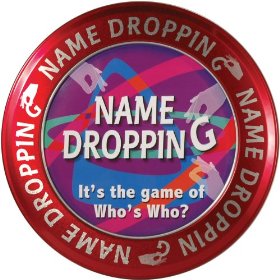A Behind the Scenes Look at Personal Brand Building
As you have been working hard to brand yourself, you’ve likely done some research into the art of brand-building. In my daytime job, as co-owner of the marketing firm Maple Creative, I spend quite a bit of time building brands for companies, products, places and organizations. I thought it might be fun and helpful to take you behind the scenes of how it’s done in our shop.
Social Media Strategy – Old Tools in an Evolving World
I recently listened to an ERE social media presentation which was presented by Penelope Trunk. I thought the vast majority of the presentation was excellent, with great insight and interesting thoughts on social media as a whole.
I always try to leave a presentation with one or two items that stand out and leave me with something to build off of. In this case, I walked away with two topics on which I did not agree with Penelope’s feedback. Now I hope to provide you with my thoughts on the issues.
Personal Brand Management – When Your Personal Brand Outshines the Corporate Brand
As the concept and importance of personal branding, social media, and an online presence becomes more commonplace, companies are becoming more interested in their employees’ personal brands. Their concerns are legitimate. Here’s why. . .
Personal Brand Strategy – Brand Yourself Using Multi Channels
We often discuss Facebook, LinkedIn, Twitter, your resume, networking, etc. one at a time or maybe in pairs, but seldom is the whole picture described. Your brand is the sum of the all parts of the communication and information channels you use, and sometimes by the ones you do not use. Therefore it is essential to have a strategy for how to communicate in the different channels over time.
Be Heard but don’t be a Jerk: Work on Your Personal Brand – Master the Casual Conversation
Working on your personal brand should be fun. This should be an ongoing activity, and not a chore to accomplish.
So, as you work each day on making the best impression, networking and building relationships with others, there may be a few things that slip into your conversation that you should really try to avoid.
Personal Brand Strategy – Get Out What You Put In
Personal Brand Strategy – Get Out What You Put In. Growing up my mom would always tell me, “you get out of it what you put into it.” At first this didn’t make sense to me and I’d roll my eyes, and move along. But over the years it clicked one day and I had a paradigm shift. It is true. It stands true in the general sense of the phrase, and also if applied to a specific topic. In the case of personal branding, “you get out of it what you put in to it”.
A New Way for Personal Branding – Use Geolocation to Build Your Personal Brand
Geo tools present a new and exciting way for users to network, develop relationships, engage a customer base, and build a brand within a niche community or ecosystem. Building a brand reputation, recognition, or relationship takes time and touches. Customers want to do business with a brand which is recognizable and has a solid reputation built on recommendations from trusted sources like their own friends and family. And with your personal brand, geolocation and tagging tools are another new facet of the marketing and branding package that sets you apart from the rest.














